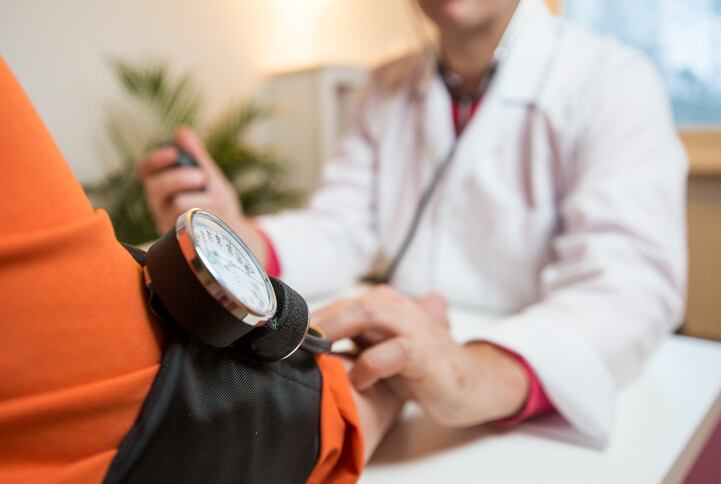“Medical students of today can be the agents of change in bringing nutrition discussions into the GP surgery. Take what you learn today to the doctors already in practice who are struggling with confidence in how to discuss nutrition.”
These were the words of Elaine Macaninch, a nutrition medical educator for Brighton and Sussex Medical School (BSMS) and nutrition lead and director of Culinary Medicine UK, an initiative devoted to educating medical students in the basics of nutrition.
She spoke at an Educational Conference on Food, Nutrition and Health, hosted by medical student society Nutritank, at the Royal Society of Medicine in London, on Saturday (March 7th), where delegates received a wealth of tips on the best ways to communicate nutrition advice to their patients.
Describing the problem to the conference room full of training doctors, nutritionists, dietitians and other health experts, she revealed the results of a 'Time for Nutrition' paper from the Need for Nutrition Education Programme (NNEdPro), due to be published shortly in 'BMJ Nutrition, Prevention and Health' which describes the opinions that doctors and medical students have about their nutrition training.
Co-authored by Dr Luke Buckner, the paper takes data from 840 doctors and medical students from Nutritank and NNedPro led projects and some data from Brighton Medical school and shows most participants agree that nutrition is important to health but more than 70% reported receiving less than two hours worth of training in nutrition.
Just 26% of doctors said they were confident in their nutrition knowledge and 74% gave nutrition advice less than once a month.
Macaninch's role as nutrition medical educator at BSMS is being developed as a case study that can be replicated in other medical schools. But her portfolio goes further still - She is also executive member of NNEdPro and is part of the UK Nutrition in Medical Education Review Board, which sits with the Association for Nutrition and is tasked with writing a nutrition curriculum to be implemented across the UK.
Speaking at the conference, she pointed out how difficult it currently is for doctors to give their patients nutrition advice, not just because they lack the training but because they are so time restricted.
“As doctors, you have about 10 minutes to talk about everything from A-Z of every health problem your patient has in the world whereas a dietitian generally has 30 minutes per consultation just to discuss nutrition.”
She added that she is hopeful for change because dietitians are now part of the GP contract meaning they can refer to dietitians directly.
"With this in place, dietitians hope to be able to help reduce hospital care and help doctors prescribe supplements and reduce demand on GP's."
However, the system requires a significant boost in the number of registered nutritionists and dietitians in order to make this opportunity an effective reality - WHO's 2017 figures show there are just 2.3 nutrition professionals per 100,000 population.
“The problem is that GP’s will often think the waiting list is so long, what’s the point in bothering to refer a patient. We would request that GP's please continue to refer and perhaps even point out the need for more dietitians!
"I’m looking forward to a future, I hope, where there is more access to dietitians within primary care."
Culinary Medicine UK
Culinary Medicine, founded by NHS GP Dr Rupy Aujla, works to develop nutrition training within medical schools with interactive sessions designed to make the education as relevant and practical as possible.
“We ask students to cook a meal for case studies," explains Macaninch. "For example, a patient with a high risk of cardiovascular disease or type 2 diabetes, or someone with IBS."
The programme mostly teaches individual modules to qualified doctors on weekends using the facilities at Westminster Kingsway culinary school but has also taught intensive four week modules to Bristol University Medical students as part of their undergraduate training.
The team is also is working to create a completely online version of the course.
Holistic lifestyle advice
Also speaking at the event in London, Professor Sumantra Ray, medical doctor, registered nutritionist, and founding chair and executive director of the NNEdPro, discussed the importance of nutrition for reducing lifestyle-led diseases such as type 2 diabetes.
He said its imperative that anyone giving nutrition advice makes it as individual focused as possible.
“You can’t just make sweeping statements and start encouraging people to cut out things like whole grains and cereal fibre and a lot of other things that low-carb evangelism has led to as then you start to cut out phytochemicals and fibre and so forth.
“It’s important not to treat the numbers but to treat the individual patient. The advice needs to be holistic - we can’t address food alone.
"We know that when it comes to public health interventions that have gone a bit wrong that the ‘low fat’ aim has often ended up in much higher sugar and carb content which is not helpful.
“Individual level action is essential and education holds the key to that sort of action."
Elizabeth Thompson, holistic doctor for the National Centre for Integrative Medicine, added that nutrition impacts people emotionally, as well as physically.
"It's important to realise we have a bit of a crisis with emotional and mental wellness and we know food can support our mental processes in a real way.
"Tart cherry, for example, has been shown to raise levels of melatonin. So before we jump to zopiclone we should realise there are other things to try."
Read the second part of the conference report here.


